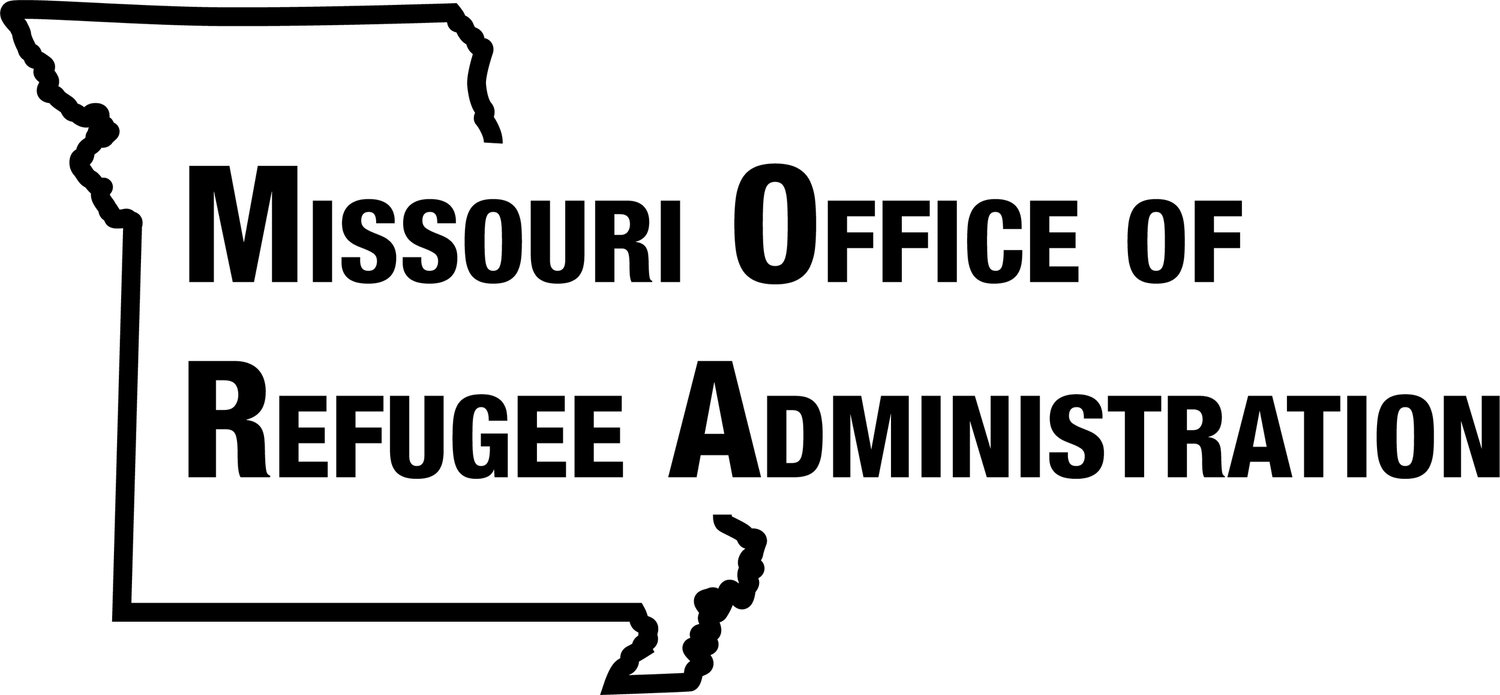
Refugee Youth
Five Key Strategies to Recruit Foster Homes for Teen Unaccompanied Refugee Minors (URMs): This Switchboard resource outlines multiple strategies that can be used during conversations for prospective foster parents for teen URMs, including leveraging foster parent successes, focusing on the benefits, offering training, community collaboration and balancing hope with realistic expectations.
Strategies and Tips for Refugee Service Providers to Promote Access to Early Childhood Programs: Switchboard and the Urban Institute created this resource to increase families' awareness and trust and reduce barriers to accessing early childhood services. Topics covered include working within your organization, engaging with families and partnering with other community organizations.
Refugee Children Have a Right to Education on the Move: Save the Children and HIAS launched the second phase of the campaign Education Without Limits: I Learn Here or There to inform and raise awareness about the importance of the right to education and how to access educational services for refugee and migrant children and adolescents on the migration route through Central America.
Unlocking Potential: Enhancing Community College Services for Immigrant and Refugee Students: This report from Upwardly Global offers detailed advice for community college leaders and discusses gaps and opportunities to better support immigrants and refugees focused programming.
GUIDE: Promoting Supportive Mentoring for Refugee Youth: This guide discusses factors that contribute to strong matches between community-based mentors and mentees, strategies for effective mentor engagement, and practical skills to apply in mentoring relationships.
GUIDE: Providing Culturally Sensitive Sexual and Reproductive Health Information for Newcomer Youth: This guide reviews the sexual and reproductive healthcare needs and rights of newcomer youth and identifies additional supportive resources.
Understanding Trauma in Refugee Youth: Pre-flight, Flight, & Post-flight: This webinar from Bridging Refugee Youth and Children's Services offers a foundational knowledge of relevant theories; case vignettes illustrating refugee youth in the community, family, and school; and school-specific considerations.
What Now? Post-High School, College & Career Readiness for Refugee Youth: This webinar from Bridging Refugee Youth and Children's Services offers insights into ways to prepare refugee students for higher education and careers, including how to involve refugee parents in the decision making.
What Now? Post-High School, College & Career Readiness for Refugee Youth: This webinar from Bridging Refugee Youth and Children's Services offers insights into ways to prepare refugee students for higher education and careers, including how to involve refugee parents in the decision making.
Job Corps Provides Opportunities for Refugee Young Adults: Job Corps is a free program administered by the U.S. Department of Labor, available to help young people improve their livelihood and career prospects by empowering them to obtain professional jobs and become financially independent. Participants in Job Corps live on-site at one of 131 locations across the country, learning academic skills and training for a chosen career path.
Archived Webinar: Viewing Trauma Thought a Developmental Lens: This webinar is the first part of the Traumatic Stress Among Refugee Children and Youth series offered in collaboration with the Refugee Health Technical Assistance Center. It introduces the concept of traumatic stress as it relates to children and youth, including the impact on their attachment and common expressions of emotional distress.
Advice for Mentors Who Work with Newcomer Youth: While there is no one-size-fits-all approach on how to best support mentors of newcomer youth, program coordinators can tailor their management strategies to meet clients’ specific needs and provide strong support to volunteer mentors.
Guide: Psychological First Aid for Displaced Children and Families: This resource from the National Child Traumatic Stress Network explains how Psychological First Aid (PFA) is an evidence-informed flexible approach that offers tools to assist staff in supporting displaced families.
Archived Webinar: Providing Culturally Sensitive Sexual and Reproductive Health Information for Newcomer Youth: This webinar will help you build upon newcomers’ strengths to support them in accessing the sexual and reproductive healthcare information and services they need.
Roadblocks to Workforce Inclusion for Young Adult Immigrants: This report shows that young immigrants face five major roadblocks, from a lack of networks to communication barriers, while navigating the U.S. labor market and pathway to self-sufficiency.
The Mental Health & Psychosocial Support Network and HIAS have collaborated to produce the new Children and Families Mental Health and Psychosocial Support Resource Collection. More resources will be added to the collection soon, so don't forget to visit regularly.
Toolkit: Measures that are Appropriate for Refugee Children and Families: This toolkit from Switchboard provides links and information about a variety of tools including checklists, inventories, questionnaires, and reports to address issues that refugee children and families face.
Video: Who She Will Become: The same family we have gotten to know through Children Keep Our Community Strong and Children Are My Community's Future have welcomed a new baby into the family. They take many steps to keep her safe and support her development, including using the right car seat, reading to her every night, and making sure she is up-to-date on vaccines.
Refugee Youth Mentoring: Essential Elements for Effective Programs: This information guide explains the existing evidence on youth mentoring and offers steps for designing an effective youth mentoring program that achieves the desired outcomes. Click here to read more.
Leaders of Tomorrow – Immigrant & Refugee Youth: A Guidebook on Leadership Development: Leaders of Tomorrow is a leadership program developed by the Institute for Educational Leadership (IEL) to support and mobilize immigrant and refugee youth. It highlights opportunities for youth to expand their knowledge, strengthen their skills, access tools and resources, and improve their communities. Click here to access the guide.
Helping Children Cope After Coming to a New Country: This resource, created by Center for Adjustment, Resilience, and Recovery (CARRE), is designed to help clients support their children after coming to a new country. Click here to access.
The new “Welcome Sesame,” from the Sesame Workshop, offers educational materials to Afghan and Ukrainian refugee families, available in Dari, Pashto, Ukrainian, Spanish, and English, and [covering] subjects ranging from coping with the trauma of resettlement to fostering a sense of belonging.
Guidance for Protecting Displaced and Refugee Children in and Outside of Ukraine, from UNICEF, outlines how authorities and aid workers can help keep children displaced by the war in Ukraine safe from trafficking and other forms of exploitation and abuse.
Striving for Equity for Young Children of Immigrants with Disabilities is an excellent article that includes 7 recommendations for what elementary schools can do to identify and address the needs of children of immigrants having difficulty in school.
Supporting Afghan Youth in Schools and Youth Programs in the United States: Switchboard’s toolkit is designed for educators and youth program managers who are welcoming Afghan youth and want to prepare for their arrival. The toolkit provides context on the Afghan education system and possible educational experiences of students. It includes considerations and strategies for working with Afghan students and their families, and additional resources that may be useful for serving this population.
Integration Barriers: Perspectives from Refugee Youth: Refugee youth talk about the biggest integration barriers they face. Presenters share the findings and recommendations that came out of the U.S. Refugee Youth Consultation. The methodology for how these barriers were identified is also discussed.
Immigrant and Refugee Youth and Families: Research and Practice, aims to increase readers’ awareness of issues pertinent to immigrant and refugee families and youth, to better provide culturally respectful and sensitive services and policy to this population at a time when they are navigating between their host culture and home culture in addition to dealing with challenges encountered in resettlement.
Keeping Safe! A Children’s Bilingual Guide, from Bridging Refugee Youth and Children’s Services (BRYCS), is now available in Dari and Pashto. Originally created for unaccompanied children, this simple guide will assist young people in knowing their rights while they are in the United States, and keeping them safe so they can thrive in their life journeys. A teen version is also available.
Raising Children in a New Country: An Illustrated Handbook: Help newcomer parents get the basic information they need about U.S. laws and parenting practices. Although newcomers may find this booklet useful by itself, it is primarily intended for case managers and other service providers to use together with their refugee and immigrant clients. PDFs available in English, Arabic, Dari, French, Pashto, Somali, and Spanish
Data and Research on Children and Youth in Forced Displacement: Identifying Gaps and Opportunities, from the Joint Data Center on Forced Displacement, highlights some examples of research which contribute to closing these gaps, by focusing on three main areas of investigation: mental health risks faced by forcibly displaced children; evidence from existing evaluations and assessments on ‘what works’; and emerging research into the use of technological innovations for the management of child migration and displacement data.
